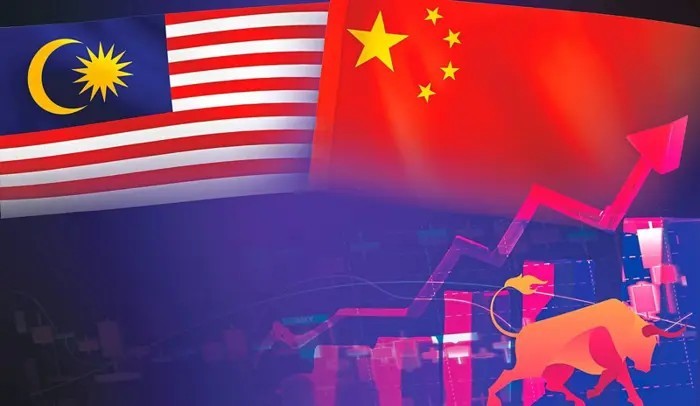
PETALING JAYA: The FBM KLCI is likely to remain rangebound this week, taking cues from the US markets.
After two consecutive days of strong gains, Bursa Malaysia dipped yesterday afternoon as investors locked in profits amid growing concerns over a potential escalation in the ongoing China-US trade war.
As of 5pm, the FBM KLCI dropped 9.51 points to close at 1,476.92, a decline of 0.64% in yesterday’s trading.
The local bourse rose 26.10 points to 1,480.86 on Monday and added another 5.57 points to close at 1,486.43 on Tuesday, bolstered by the United States’ 90-day pause on reciprocal tariffs and additional concessions.
Hong Leong Investment Bank noted that sentiment was also spurred by positive expectations from Chinese President Xi Jinping’s visit to Malaysia, which is widely regarded as a constructive engagement that could contribute to Malaysia’s economic resilience, amid ongoing global trade turbulence and macroeconomic headwinds.
Socio-Economic Research Centre executive director Lee Heng Guie told StarBiz that uncertainty remains over what might unfold during the 90-day pause as trade negotiations take place.
He said the escalating tit-for-tat tariffs between the United States and China are likely to hurt both economies, potentially dragging down global trade flows and economic growth.
“On the domestic economy, the trade tensions will have (both) direct and indirect impacts on Malaysia’s exports, and its potential spillover effects on domestic demand due to lower exports and income, as well as a more cautious investment approach,” he explained.
As the Statistics Department gets ready to announce Malaysia’s trade data for March 2025, Lee expects exports to grow by 5.5% last month, reflecting front-loading of shipments ahead of the tariff implementation.
“The near-term export outlook is generally cautious due to the impact of tariffs that have resulted in some scaling back of orders as the buyers wait and see to have greater clarity,” he added.
Lee said final demand for Malaysian goods in the United States will be impacted as American consumers reduce spending due to rising inflation caused by the tariffs.
Meanwhile, the visit of Chinese President Xi to Malaysia has helped to boost positive economic sentiment.
Lee said Xi’s visit reinforces the strong longstanding bilateral economic relations between China and Malaysia, especially amid ongoing trade tensions.
“This will elevate the strategic partnership between the two countries to the next level of mutually beneficial and trusted partners in deepening economic integration, amid a complex new world order, shaped by rising protectionism,” he noted.
On a bilateral basis, Lee emphasised that Malaysia hopes China will continue to buy more products, such as palm oil and fruits, to help narrow Malaysia’s trade surplus amid the global tariff tensions.
In return, Malaysia welcomes China’s investment in high-technology sectors, including digitalisation, artificial intelligence (AI) and renewable energy.
“Malaysia can leverage China’s technological expertise in areas such as eCommerce, financial technology and AI to support the country’s own digital transformation,” Lee added.
On top of that, joint initiatives in cross-border eCommerce, digital payments and cybersecurity could foster greater economic integration and innovation.
It’s also worth noting that since 2009, China has been Malaysia’s largest trading partner for 16 consecutive years, accounting for 16.8% of Malaysia’s total external trade.
“Malaysia has incurred a trade deficit with China for 13 consecutive years with an average of RM39bil per year since 2012.
“Notably, the trade deficit enlarged more than 35 times from RM3.1bil in 2012 to RM108.8bil in 2024,” Lee said.
Tradeview Capital Sdn Bhd chief executive officer Ng Zhu Hann agreed with Lee’s assessment, adding that Xi’s visit is indeed a momentous occasion amind the backdrop of a trade war and ongoing US tariff talk.
“It signifies a good diplomatic relationship between our countries and it’s also comforting to know that China views Malaysia as an important trade and economic partner,” he noted.
Ng also pointed out that if Xi’s visit results in significant announcements regarding investments, trade, or other business agreements, it would definitely serve as a confidence booster for the domestic economy and, indirectly, to the local stock market.
Furthermore, Ng noted that Malaysia’s role as Asean chair this year places the country in a key position to lead the region in negotiations, ensuring that Malaysia can advocate for the benefits of Asean as a collective bloc.
“Together, united, we are stronger as a collective bargaining bloc, rather than being isolated.
“What Vietnam did to negotiate and give in to the United States, instead of negotiating under the Asean bloc, was not a particularly wise move,” he concluded.
Source: https://www.thestar.com.my/business/business-news/2025/04/17/xis-visit-helps-uplift-economic-sentiment

